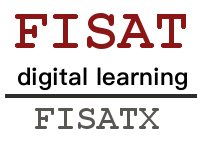Software Engineering and Project Management
FISATX

Course Outcome: Software Engineering and Project Management (Course Code: CS 308)
Course Outcome Statement CO308.1 Understand Software Engineering Processes, methods and tools CO308.2 Identify suitable life cycle models, Process framework model, planning to be used with the project. CO308.3 Analyse a problem, plan, design principles and define the computing requirements to the problem CO308.4 Translate a requirement specification to a design, cost estimation matrix formation, complexity analysis of code, convert using an appropriate software engineering methodology. CO308.5 Formulate appropriate testing and maintaining strategy, configuration management for the given software system. CO308.6 Analyse a software project phase on current technology, by managing resources economically and keeping ethical values
Syllabus: Software Engineering and Project Management
(Course Code: CS 308)
Module I,
Introduction to software engineering scope of software engineering-– historical aspects, economic aspects, maintenance aspects specification and design aspects, team programming aspects. Software engineering a layered technology – processes, methods and tools Software engineering a layered technology – processes, methods and tools Waterfall model, prototyping models, incremental models, spiral modelModule II,
Capability maturity model (CMM) ISO 9000. Requirement analysis Requirements elicitation for software Analysis principles ,software prototyping , specification.Series 1
Module III,
Project planning objective, software scope, Cost Estimation models COCOMO, Putnam Resource allocation model Single variable model staffing and personal planning. design process principles, concepts, effective modular design, top down, bottom up strategies -stepwise refinement.Module IV,
Programming practice, verification size measures, complexity analysis coding standards Testing – fundamentals white box testing, control structure testing black box testing basis path testing, code walk-throughs and inspection testing strategies-Issues Unit testing, integration testing, Validation testing, System testing.Module V
Overview of maintenance process, types of maintenance. software risks risk identification-risk monitoring and management Project Management concept: People – Product-Process-ProjectSeries 2
Module VI
Project scheduling and tracking: Basic concepts Scheduling tools and techniques relation between people and effort defining task set for the software project-selecting software engineering task Software configuration management: Basics and standards User interface design - rules Computer aided software engineering tools CASE building blocks, taxonomy of CASE tools, integrated CASE environment.Requirements
Communication Skill, Programming Skill, Management Skill.
